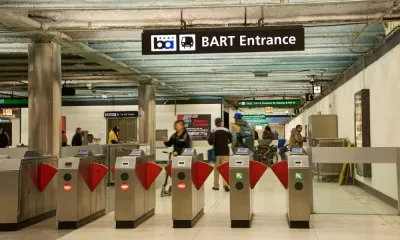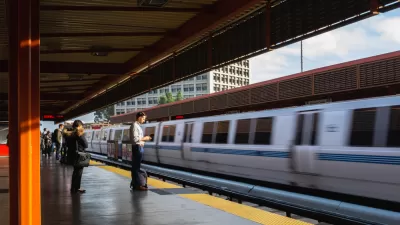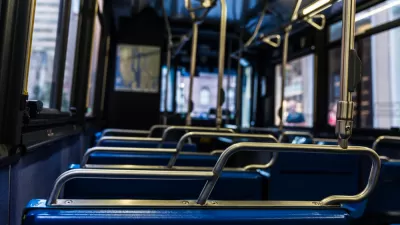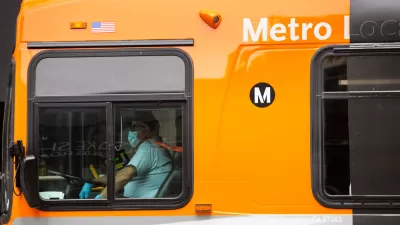California state political leaders last night struck a deal to keep the state’s transit systems afloat as ridership continues to recover and federal pandemic stimulus money runs dry.

“California’s state budget will include a subsidy for BART, SFMTA and Bay Area transit agencies that could delay service cuts agencies warned would happen as early as fall as they approach massive financial deficits,” reports Ricardo Cano in a paywalled article for the San Francisco Chronicle.
“The budget deal struck by Gov. Gavin Newsom and Democratic legislative leaders Sunday night nixes $2 billion in cuts to transit capital projects that the governor proposed in January. Transit agencies will be able to ‘flex’ these preserved capital funds to pay for service costs,” according to the article.
The budget breakthrough came just a few days after S&P Global Ratings dropped the Bay Area Rapid Transit District’s credit two levels, to A+.
In addition to the flex funding for operations, California transit systems will receive $1.1 billion in state cap-and-trade program funding. Together, the funding is enough to delay a fiscal cliff that leaders at BART and Muni had predicted would arrive in 2025. Deep service cuts, however, could have started to take effect as early as this fall, according to Cano, who also reported in detail on the risks facing California transit systems in March 2023.
California is far from alone in needing to find long-term solutions to the transit funding gap—Washington, D.C.’s Metro has been threatened with a lower credit rating, for example, and New York City's transit systems are pinning their hopes for a long-term finding solution on a long-delayed and controversial congestion pricing scheme that would charge drivers to enter a large section of Manhattan.
FULL STORY: California budget deal will include a $1.1 billion bailout for BART, Bay Area transit

Alabama: Trump Terminates Settlements for Black Communities Harmed By Raw Sewage
Trump deemed the landmark civil rights agreement “illegal DEI and environmental justice policy.”

Planetizen Federal Action Tracker
A weekly monitor of how Trump’s orders and actions are impacting planners and planning in America.

How Atlanta Built 7,000 Housing Units in 3 Years
The city’s comprehensive, neighborhood-focused housing strategy focuses on identifying properties and land that can be repurposed for housing and encouraging development in underserved neighborhoods.

In Both Crashes and Crime, Public Transportation is Far Safer than Driving
Contrary to popular assumptions, public transportation has far lower crash and crime rates than automobile travel. For safer communities, improve and encourage transit travel.

Report: Zoning Reforms Should Complement Nashville’s Ambitious Transit Plan
Without reform, restrictive zoning codes will limit the impact of the city’s planned transit expansion and could exclude some of the residents who depend on transit the most.

Judge Orders Release of Frozen IRA, IIJA Funding
The decision is a victory for environmental groups who charged that freezing funds for critical infrastructure and disaster response programs caused “real and irreparable harm” to communities.
Urban Design for Planners 1: Software Tools
This six-course series explores essential urban design concepts using open source software and equips planners with the tools they need to participate fully in the urban design process.
Planning for Universal Design
Learn the tools for implementing Universal Design in planning regulations.
Caltrans
Smith Gee Studio
Institute for Housing and Urban Development Studies (IHS)
City of Grandview
Harvard GSD Executive Education
Toledo-Lucas County Plan Commissions
Salt Lake City
NYU Wagner Graduate School of Public Service





























